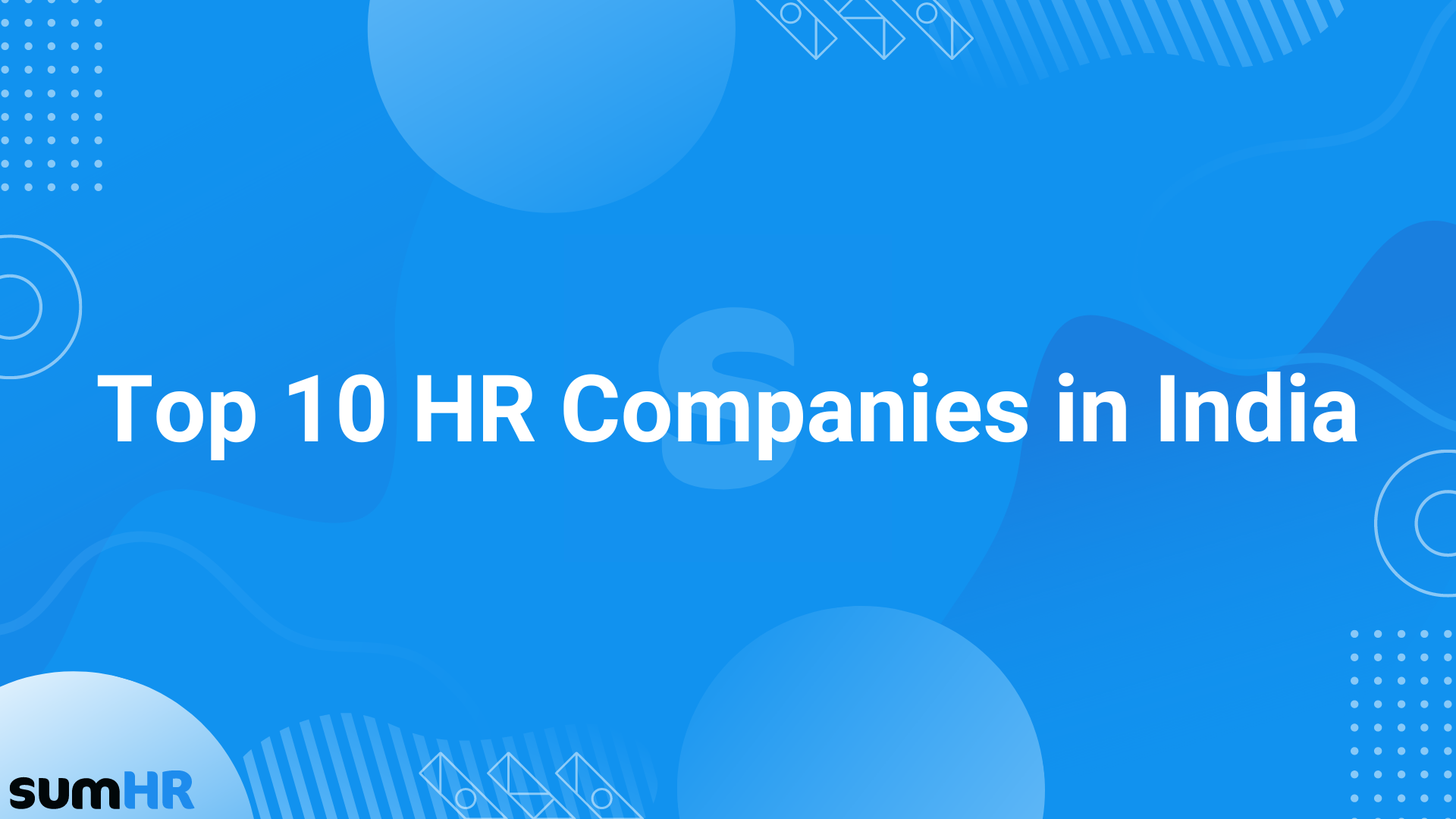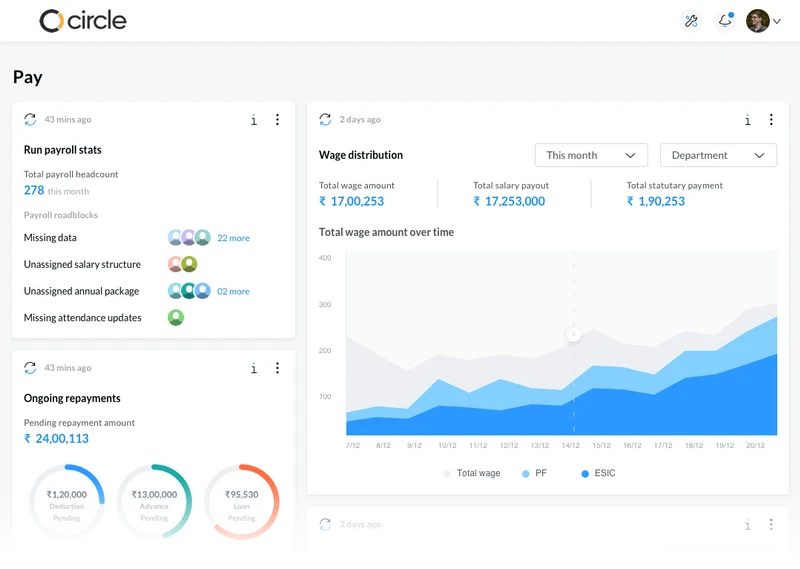What is the most valuable asset of any working company? Yes, that’s correct; it’s the employees. Employees are the backbone of a company. They dedicate most of their daily time and energy to working toward the company’s success. Employees stand with the company in times of need and give their best. All the success of the company is because of its hard-working employees. Thus, the company is responsible for taking care of its employees. Besides salary, leaves and perks, companies also give insurance schemes as an employee benefit.
sumHR is developing an end-to-end HRMS that is adaptable and adjustable with our full-suite HR platform in the cloud to assist HR teams in automating the tedious, streamlining the chaotic, and enhancing the HR experience for employees.
1. What Is Insurance As An Employee Benefit?
The employee works for the company. Thus, the company must be liable to ensure protection for its employees. The insurance employee benefits are given to the current employees of the company by the employer. Apart from an added benefit, it also acts as an incentive to keep the employee in the company and make them feel good about the position.
2. Benefits Of Employee Insurance
Here is why your company must offer insurance to their employees-
a. Reduce The Number Of Leaves
Insurance is a way of looking into the health of the employee. If the employees are happy and healthy, they shall take a lesser number of leaves and absent days from work.
b. Recruitment Strategy
Reaching out to potential candidates has been tricky over the last few years as job seekers have tremendously increased. Thus, it is essential for recruiters to find new and attractive ways to get better candidates for the job. One such way is promising them insurance as a benefit of working with the company.
c. Boost Employee Retention
While working as an employee, employees may often get thoughts about the benefits that other companies are offering for the same position. Before considering the switch, they often weigh their pros and cons. Getting employee insurance schemes from your company goes in the pro column, thus motivating them to continue working for your company.
d. Saves Money
It might seem simple, but providing your employees with insurance can help reduce your burden. This helps you maintain the salary offered and compensate for the same. Employee insurance can help you save taxes as well. With the help of a tie-up at insurance companies, you may also be able to get benefits or a discounted rate, which makes work easier for you.
e. Employee Insurance As A Group Insurance
Group insurance is a term that refers to a situation where like-minded people or a particular group of people get the same set of insurance. One such incident is the insurance offered to employees of the same company.
It falls under the category of a formal group that is between the employee and the employer. In this situation, the employer is responsible for purchasing the insurance plan for their employees.
The group insurance may be contributory or non-contributory. Let us understand the difference-
- Non-contributory group insurance plan- here, only one party pays the entire insurance, including the base amount and the premium.
- Contributory group insurance plan – In this structure, the involved parties, the employees and the employers, pay the total insurance plan. It is divided based on a mutual decision or levied by the company. It is divided based on a percentage, or the employer pays the base amount, and the employee then pays the premium charge.
It is clarified during the contract which type of group insurance plan shall be established.
Also Read: Role of HR Manager
3. What Is Employee Liability Insurance?
When a new employee joins the organization, there are many documents and agreements that are signed, such as contract agreements, confidentiality, insurance, etc. It is the duty of the company to ensure that leaves are left unturned and that everything is perfect. However, it is always possible that something might go haywire. This is where liability insurance comes into the picture. The liability insurance protects the company, which safeguards them from any consequences that might occur by the company due to administrative mishaps.
4. Types Of Insurance Covered
There are many types of insurance that are generally offered to employees within the company. Let us look into them-
a. Health Insurance
Health insurance is the medi-claim policy that gives the employee insurance benefits. If the employee falls sick and needs surgery, this insurance plan covers medical expenses, medicine, other necessities, etc. Depending on the company, they either give personal Health insurance or family health insurance. Family health insurance plan generally includes the health insurance benefits of family members such as the spouse and children. To get Health insurance, that is no need for any pre-medical check-up. It helps get cashless treatment at most hospitals.
Most Health insurance has a budget allocation system where only a certain amount of bills can be claimed. There are different types of Health insurance that cover different illnesses. Most critical illnesses are covered in the majority of policies.
Get free health insurance with sumHR HRMS
b. Accident Insurance
Accident insurance is generally personal insurance. Here the individual is protected from any kind of accidental injury. It also helps to provide financial protection to the individual and covers hospitalization, disability or death. Accident insurance can also be a financial backup for the individual’s family members. In the case of a disability, the individual also disease is a certain amount of the insurance premium depending on its severity.
c. Pension Insurance Plan
The pensions insurance plan helps take care of the retirement needs of an employee. Here the employee only gets benefits if they retire while working in the same company. Most companies only offer this insurance plan to employees who have worked for a defined period within the organization. There are different plans and structures that can be offered to employees as a part of the pension plan. The individual also gains tax benefits with the help of this plan under section 80C. Instead of the pension insurance plan, popular alternative plans are the employee provident fund and the national pension system.
d. Employee Deposit-Linked Insurance
The employee deposit-linked insurance is a part of the employee provident fund. This insurance plan offers up to seven lakhs in case of permanent disability or even death. This scheme is acceptable worldwide, irrespective of the place of the accident or the time. The benefits of this plan can also be switched from one organization to the next company.
e. Employee Compensation Insurance
As per the ministry of labour, the employee compensation act was issued, where the company’s duty is to protect the workers. Thus, the employee compensation insurance plan came into force. Under this plan, the company takes full guarantee in case any mishap takes place while the employee is working within the organization. This employee insurance cover also covers any type of injury or death of the employee.
As per this plan, the company is supposed to provide financial support and cover any loss of income that the employee has to face due to the accident caused. The best part of this insurance plan is it is even applicable for workers working on a contract and part-time basis, and not only full-time employees. This employee benefits importance plan helps provide financial security to workers who are specialists working in hazardous companies or places such as construction sites, factories, etc.
f. Travel Insurance
Travelling has become essential for many companies where employees are needed to visit different locations for work. But how does the company ensure that the employee is taken care of during his travel period? This can be achieved with the help of travel insurance. Travel insurance as an employee benefit plan helps protect the employee against medical emergencies, loss of luggage, accidents, etc., caused during their journey. The best part of travel insurance is that it is not necessary to take a complete plan. Instead, companies can insure each travel as per the schedule and take this policy multiple times a year.
g. Public Liability Insurance
While working in a company, your employees represent the organization. They shall meet various people for business meetings, transactions, communication, etc. The public liability insurance plan helps protect your employees from any harm caused to any third party, such as accidents or property damage. This insurance plan helps cover the legal liabilities of the company and their employee.
Also Read: Guide on Payroll Management
Conclusion
For a company’s success, it is essential to have healthy and happy employees who shall put their hearts and work for the organisation’s development. It is not only important to find the perfect candidate for the job, but it is also essential to retain them and support their overall development. Providing employee with insurance plans as an employee benefit helps them showcase the Goodwill of the company. It helps the company to present their good front in front of the employees.
Insurance plans help protect individuals in times of medical emergency and any major losses. It acts as a source of financial security and personal protection. Thus, it safeguards the interest of the employees. If you are looking for more employee retention tips or services that cater to the human resource department of your company, check out sumHR








